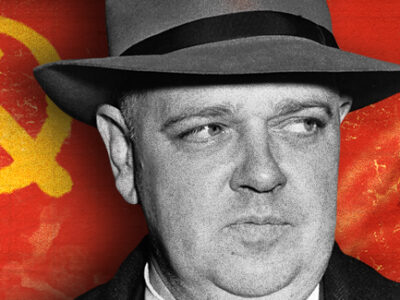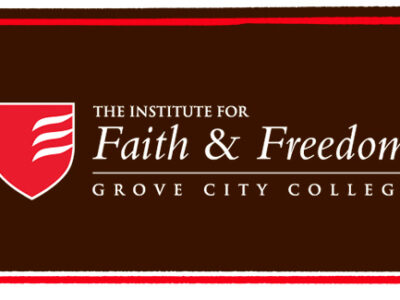“Charlie Wilson’s War” is a fascinating movie for political buffs. Director Mike Nichols, star and co-producer Tom Hanks, and co-star Julia Roberts are well-known liberals. The U.S. support of the Afghan Mujahedin’s fight against the Soviet invaders in the 1980s would seem to be a topic tailor-made for conservatives and Republicans. What would Hollywood liberals do with such a story?
I was pleasantly surprised. At the heart of this film are several messages or morals that are either non-ideological or, if anything, conservative in their orientation. That isn’t to say that the movie is “the truth, the whole truth, and nothing but the truth” about how U.S. support for the Mujahedin developed. My colleague, historian Paul Kengor, will explore some of the historical errors of omission and commission in his review. This review will assess the movie at face value—that is, as a story, not a history.
The primary theme (or at least, the one that resonated most deeply with me) is that a determined individual can move mountains. In the movie, three people—Congressman Charlie Wilson (D-TX), wealthy Houston socialite Joanne Herring, and CIA employee Gust Avrakotos—managed to change the course of history. Against a backdrop of bureaucratic resistance and congressional indifference, these three Americans, sharing a hatred of communism and dedicated to stopping the Soviet genocide in Afghanistan, triumphed in their cause. They cobbled together an unlikely network—including a Pakistani leader, an Israeli official, a young weaponry whiz kid, and a key congressional subcommittee chair—that got shoulder-held anti-aircraft weapons to the Afghan Mujahedin, thereby enabling them to neutralize Soviet airpower and expel the Soviets from their country.
A second conservative theme is the old lesson about not judging a book by its cover. Charlie, Joanne, and Gust accomplished something very heroic. Nevertheless, like all human heroes, and perhaps more than most, these heroes (as portrayed in the movie) had feet of clay. Charlie Wilson was a hard-drinking womanizer. Joanne Herring was a judgmental, imperious, tactless, sex-loving, commie-hating, I’m-saved-so-I’ll-do-whatever-I-want Christian. Gust Avrakotos was a cynical, volcanic, uncouth social misfit on friendly terms with a witch in Aliquippa, PA. Few parents would use these three as role models, but they would be proud to have their children achieve something as worthy as what they did.
A third theme, and a very strongly conservative one, is the depiction of Soviet conduct and policy in Afghanistan as utterly evil. No Hollywood liberal would have made a movie depicting the Soviet Union this way (i.e., in its true light) back when there was a Soviet Union, but better late than never. Even today, many liberals can’t bring themselves to portray evil non-Americans as evil, so this film is a significant milestone. The movie makes one wonder if there are any Charlie Wilsons hidden in the party of Nancy Pelosi and Harry Reid today.
A fourth virtue of this movie is its keen insights into the everyday reality of how our gigantic federal government functions. There are vivid vignettes of turf-protecting bureaucrats and log-rolling congressmen. Charlie Wilson won his congressional colleagues’ support for increased funding of weapons assistance to the Mujahedin because he had collected more IOUs than any other congressman. His secret? His constituents expected so little from him that he was free to trade his vote in support of other representatives’ pet issues for future paybacks. Charlie and Joanne knew exactly how to manipulate Rep. Doc Long, a key congressional subcommittee chairman, into supporting their initiative, and that is how policy often is made in Washington.
A fifth important theme raised in “Charlie Wilson’s War” was the thorny question: What should U.S. policy be in the aftermath of a country’s liberation from cruel oppression? After the Soviet withdrawal from Afghanistan, the movie shows Charlie Wilson trying and failing to get congressional funding for modest reconstruction aid for Afghanistan. The implication is that if we had built schools, hospitals, etc., perhaps we could have avoided allowing a vacuum to develop that eventually was filled by the Taliban.
The reality is that some people will condemn the United States for getting involved in foreign lands and others will condemn us if we don’t. And then there are the economics of the matter: Uncle Sam can’t afford to do everything, and we all have disagreements over what the spending priorities should be. The events in “Charlie Wilson’s War” are water over the dam. Today, though, it appears that the Bush Administration’s policy in Iraq is exactly what Charlie Wilson wanted for Afghanistan—to help it rebuild after liberation from brutal oppression. According to this movie given to us by Hollywood liberals, we’re getting it right this time.
To wrap up: this is a movie for mature audiences. There is nudity (nubile babes and Tom Hanks’ middle-aged butt), a superfluity of verbal f-bombs, and disturbing images of maimed and mutilated Afghanis. It is tightly directed by Nichols, and the quirky, fascinating lead characters are especially well-acted by Hanks and Philip Seymour Hoffman, who plays Gust. Roberts is adequate, although her dorky hairpiece is unfair to the real Joanne Herring, who is more beautiful than the woman portraying her. “Charlie Wilson’s War” is serious and thought-provoking, yet has many moments that are enjoyably humorous. It told an interesting story. Thank you, Mr. Hanks et al.




